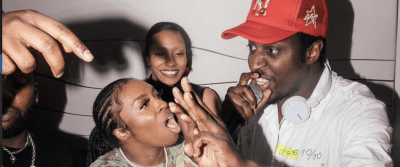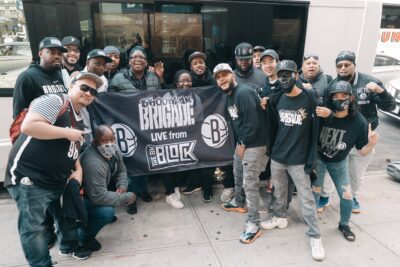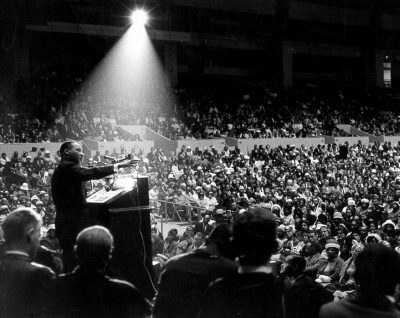The 10 Most Overrated Albums Of 2015
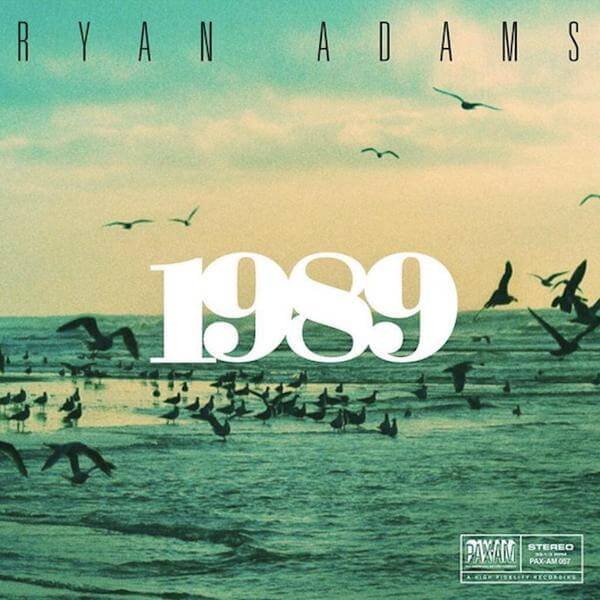
It’s inevitable that certain albums get more than their fair share of attention. Like any year, 2015 was littered with records that didn’t quite live up to the hype. Or, that were praised without a much-needed critical eye offering another perspective. In an age where MTV will pull stories about rape culture in music videos because of artist pressure, there isn’t a lot of room for people to speak about negative things in art. So, since it’s Friday, here’s some of what frustrated me in the conversation about massive albums this year.
10. Jamie xx — In Colour


Yes, even I included In Colour in our best albums of 2015 list. But did I do it knowing that it was for sure the best electronic album of the year, or because it was the one I had most access and familiarity with? Sure, I love the Popcaan and Young Thug features as much as anyone, and “Loud Places” is a jam, but those songs mostly bang because of the features, not necessarily Jamie xx himself. In fact, the parts where he shows up unaccompanied often remind me more of a sleep machine than an album.
09. Tame Impala — Currents
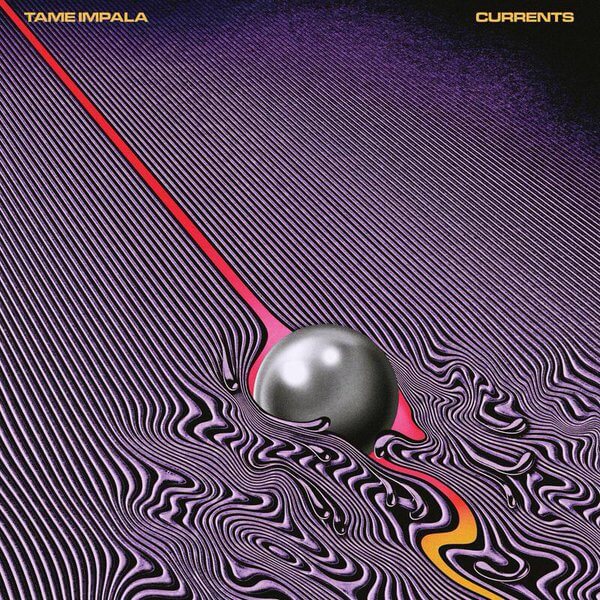

While Currents was a great album, and one I felt helped solidify Kevin Parker’s singular vision, there are some rough spots here. “‘Cause I’m A Man” can’t shake its tone deaf gender essentialism no matter how trippy those synths are, no matter how many I’m-a-nice-guy spiels Parker gives to defend it. Those weird Autotuned spoken-word sections on “Past Life” are cheesy as hell. “Let It Happen” is the “Sorry” of this album, and though the rest holds up far better than Purpose, it’s not the flawless masterpiece that some people have made it out to be.
08. Jeremih — Late Nights
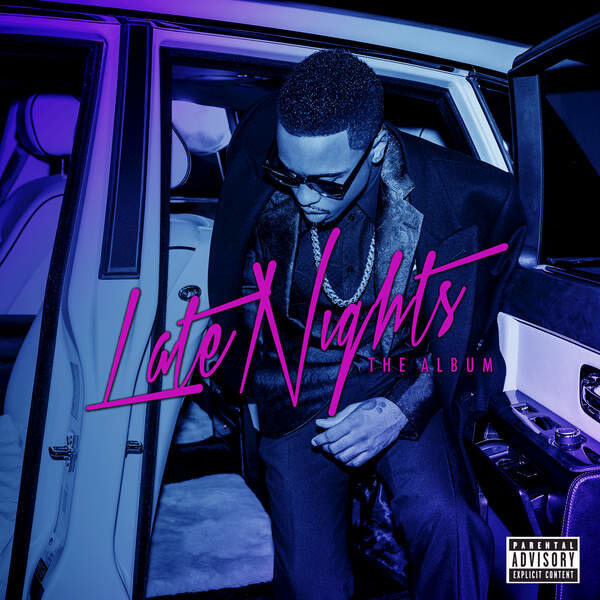

We waited three years… for this? Considering the mixtape Late Nights With Jeremih was one of the first releases to get me interested in contemporary R&B, I had high expectations for his follow-up. It was supposed to be here in October of 2014, then it was surely coming in 2015, then, suddenly, the year was almost over and no Jeremih. But we already knew things weren’t boding well. “Planes” was tweeted at the top of 2015, then disappeared, and the fact it reappeared with that terrible J.Cole verse still tacked on, like a tick on a stallion, was an even worse sign. Then, without any fanfare, and without even the thrill that comes with surprise albums, it was here. And while there’s a couple good songs on here, it doesn’t live up to his first mixtape in this series, and it doesn’t live up to the hype at all. It’s almost as though waiting so long and watching him grapple with his label–as he continues to do even after the release–made fans want to put on rose colored glasses about the quality of this release. As if they could will it into being a classic through sheer force of will. But you can’t really listen to “Paradise,” the final track on the album, and tell me the rest of it holds up! It simply doesn’t. Throwing that one on the end reminds us of what he’s really capable, and how the bulk of this album falls short of that.
http://www.youtube.com/watch?v=9q9pUH1Gf54
07. Beach House — Thank Your Lucky Stars
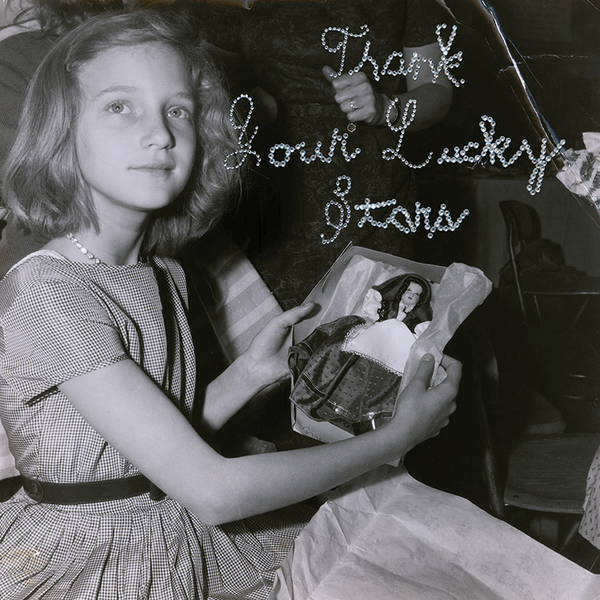

There’s such a thing as too much of a good thing. Beach House’s Depression Cherry remains one of the best albums of the year, and one that deeply touched my own life. It’s a powerful record. But by releasing another record on the heels of their strongest work to date, the Baltimore dream pop duo both wildly overestimated the attention span of a modern consumer, and watered down the worth of their own output. They’re already accused constantly of making sounds that essentially all sound the same, and wherever you fall on that spectrum, at least having a span of time between album releases helps you pick out the tiny idiosyncrasies that prove it wrong. The site I worked at for the majority of the year accidentally uncovered the surprise release, and honestly, it didn’t elicit a lot of excitement in any of us. The proximity meant that fans would be endlessly pitting the two against each other, or filtering them through the lens of each other, neither of which are helpful or useful. And then there were all the people claiming that TYLS was somehow superior to Depression Cherry? Let’s all agree that taking some time between album releases is built into the system because it’s a useful, necessary break for fans and critics alike, instead of pretending that music can come to us free and pure just because it wasn’t proceeded by a press release.
06. Justin Bieber — Purpose
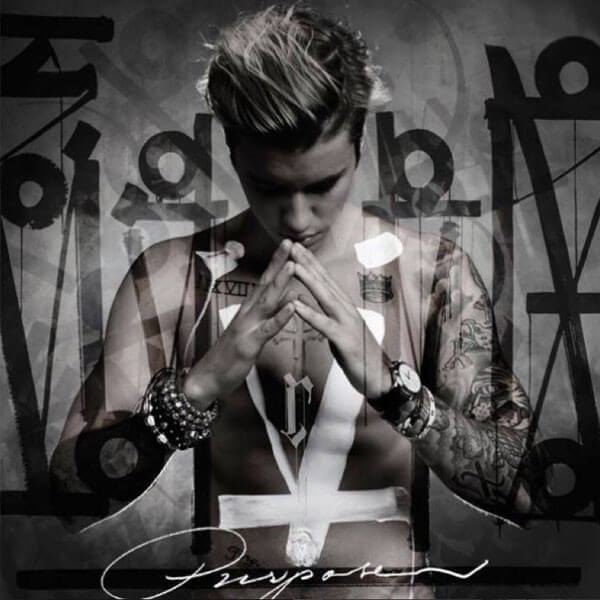

Let me clarify my stance on Justin Bieber: Purpose is a terrible, overwrought album of unfocused pop dribs and drabs. It reeks of toxic teen boy whining, and petty, sexist grievances, even as Bieber strives to enter adulthood. But, none of this can mitigate the fact that “Sorry” and “What Do You Mean” and “Where Ü Now” (barely an album track, let alone a Bieber track, guys) aren’t brilliant, beyond perfect, unfuckwithable magnificence. They are. That doesn’t mean the whole album is good though. That’s why we’re allowed to download single serving tracks off iTunes for $1.29 and move on with our lives, creating playlists that encompass the cream of an album without getting weighed down by all the sour milk at the bottom. I hope one day Bieber makes an entire album as good as “Sorry,” and that it has better lyrical intentions, too. But to pretend Purpose is anything more than a flop is far too much to ask from me. Related note: If the girl with the green shirt in the “Sorry” video is reading this, can you please call me?
05. Ryan Adams — 1989

Possibly the only covers album in 2015 to be treated like it was an original piece of art, when, it wasn’t. Cover songs and cover albums are great, and Adams has always been a masterful chameleon when it comes to interpreting the work of another artist. But this is an interpretation of a brilliantly sparkling pop album focused on the female experience; it’s a 25-year-old girl’s love life retold through the lens of a depressed middle-aged man. And since it’s done in the broad strokes of songwriter/acoustic folk-rock, instead of bombastic, world-stopping pop glitz, suddenly, people who didn’t realize Taylor Swift is an incredible lyricist are coming out of the woodwork. Neither the New Yorker or Pitchfork deemed 1989 worthy of the scope of their coverage, and yet the sanded down, warbled Adams’ version is? Even if Pitchfork panned the album, they still covered it. Taylor didn’t herself didn’t even merit coverage. I think the worst thing I heard a man ask a woman this year was when Zane Lowe asked Taylor what her favorite song off Ryan Adams’ reworking of her album was. Doesn’t he realize he should be asking Adams that question about Swift’s album? Even though no one asked Adams at all, he answered it anyway, revealing a lot about our culture’s latent bias and his own general self-centeredness in the process. The fact that he’s gone on to tweet mean things at every single critic who didn’t worship his Taylor fanfic is more indicative than anything contained on the record.
04. Kacey Musgraves — Pageant Material
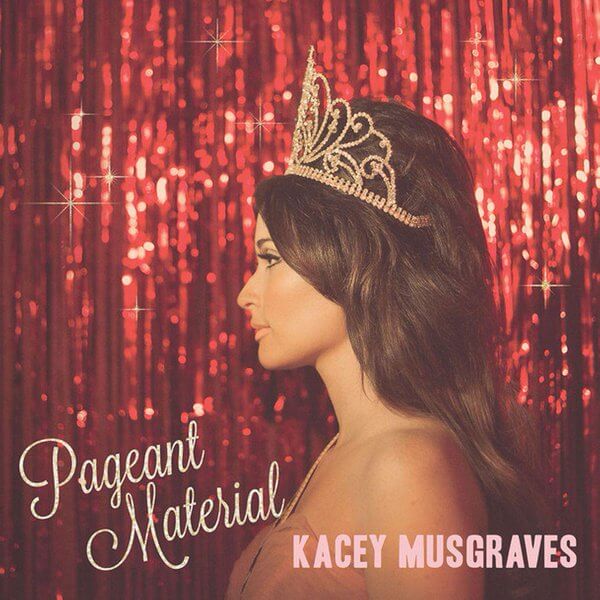

There’s a shitty dichotomy that a lot of country artists like to set up: pure country versus pop country. It’s really just another form of stodgy traditionalism hating on pop as a viable form of artistic expression, and it gets really gross when you consider that, a lot of the sounds in traditional country music sprang from necessity. Do you think people really wanted to be scraping on a washboard to create sounds? They literally had nothing else, that’s why they did it. For as progressive as Kacey Musgraves is elsewhere, her smug adherence to the “I’m not like the other girls” rhetoric this year absolutely confounded me. As did her appropriation and then skewering of beauty pageant tropes–she’s simultaneously profiting from the tiara-and-sash aesthetic while throwing the women who devote themselves to it under the bus. And while Pageant Material operates within a silvery, sighing palette that is certainly beautiful, it tends to go nowhere fast. It’s like watching a Camaro drive slow through school zones in a backwoods county. Or worse, it’s like watching a truck that should run on premium insist on gassing up with diesel. If Kacey really wants to shake up the industry like she claims, and like she has the platform to do, she needs to live in the future, not the past. In the meantime, your one friend who doesn’t do country will still be sneering at Toby Keith and fawning over Pageant Material for weeks to come.
03. Various Artists — Hamilton: Original Broadway Cast Recording
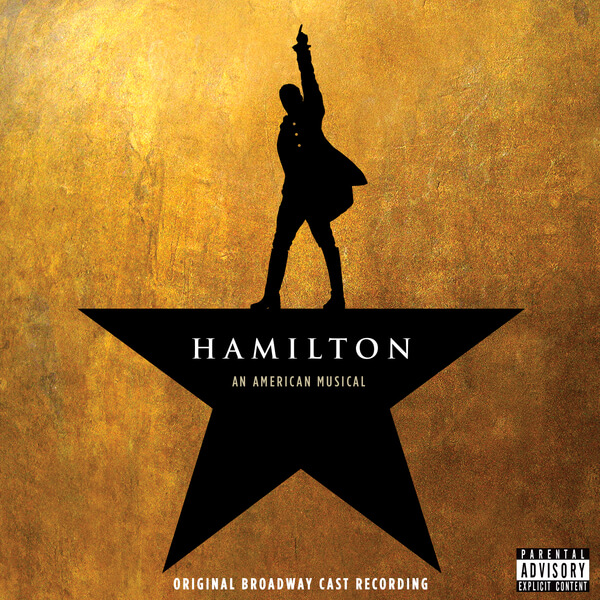

We get it, a bunch of America’s foremost theatre-going class are delighted to find their favorite bits of their very own country’s history reworked through the delightful form of hip-hop! Imagine?! Rap and musicals are two of my favorite things, the appeal here is very clear, and the conceit is definitely interesting. But this is the kind of cultural artifact that has buffoonish Atlantic writers declaring that a musical’s soundtrack is a better rap album than… well, you know, the entire host of this year’s problematic, puzzling, fascinating rap albums themselves–or any other albums at all for that matter! Lin-Manuel Miranda is a brilliant man. The fact that he’s made a widely appealing musical is to be commended. But it’s still a musical, not a fucking album, and it’s a disservice to all the artists who busted their asses to deliver us actual collections of songs to focus on this winky historical retelling, than on the present.
http://www.youtube.com/watch?v=Zp9HUc9HraQ
02. Adele — 25
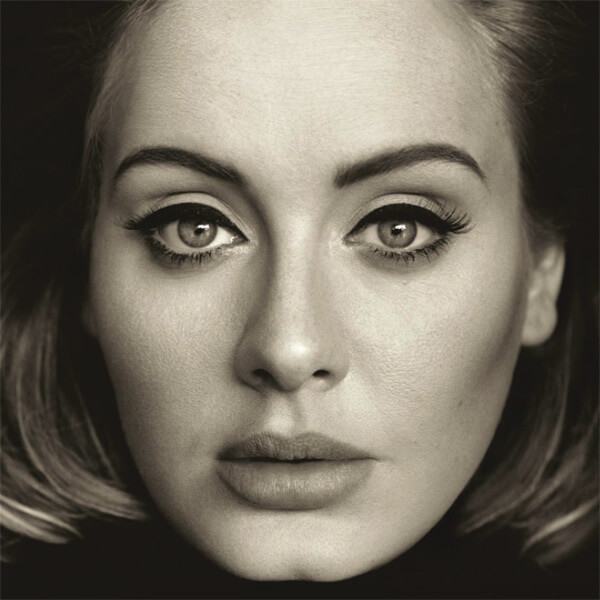

Album sales do not a great album make. Maybe Adele cracked the mommy piggybanks wide open with her highly-acclaimed third album 25, and I’ll give it to you, “Hello” was a fucking jam, but the rest of what’s here is treacle and tart. Not in a good way. It’s not even that all the songs are sad or dwelling on heartache, but they just don’t do a great or graceful job of dwelling, either. The biggest trainwreck of all is the weird all-of-time party “When We Were Young” that cops its title from the best Killers song but never even reaches that song’s pop-punk pathos. Feel free to join me in moving on from Adele at any time, preferably while we’re all still young.
01. Future — DS2
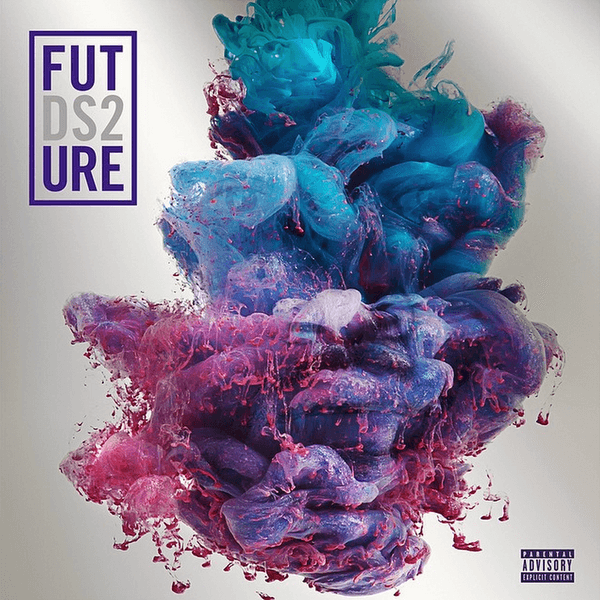

There’s something terrifying about listening to a whole album essentially made to spite someone else. There’s something terrifying about a cultural climate that celebrates that kind of record, too. Then again, these kinds of statements have a long history of being celebrated in our culture—as long as they’re coming from men. I’ve been thinking a lot about why this album bothers me so much, and I finally realized it’s because when I listen to it, I think about Ciara. Maybe I care more about the ways this music probably causes pain in her life than I do about its existence? Why do we live in a climate that thinks of Matthew Barney but not Ciara? There’s another force at work here, though. Before DS2 came out, OG Maco went on a tweet spree about how the Atlanta rapper’s music has made Lean and drug addiction sound like a cool and desirable lifestyle. Obviously, Future is by no means the only rapper or musician or person to celebrate doing drugs and glorying in hedonism. But he certainly does it to a new degree–the album itself is titled Dirty Sprite 2, the follow-up to one of his first mixtapes Dirty Sprite. Even if you weren’t aware that dirty Sprite is synonymous with Lean, it’s not that hard to figure out after listening to a couple songs.
Yesterday, critic Rebecca Solnit published an essay about Lolita, and the men who want to explain her interpretations of that novel back to her. She uses this personal experience to get at some much larger issues regarding censorship, whose stories get told, and the way art can and does impact our life with immense power. She writes:
I was trying to articulate that there is a canonical body of literature in which women’s stories are taken away from them, in which all we get are men’s stories. And that these are sometimes not only books that don’t describe the world from a woman’s point of view, but inculcate denigration and degradation of women as cool things to do.
Denigrating women as a cool thing to do, that’s exactly how I feel when I hear Future singing: “Bitch I’mma choose the dirty over you,” or “Now I’m back fucking my groupies,” or “I ain’t got no manners for no sluts.” It’s not like I don’t recognize this album as a brilliant work of art; it’s a great rap album, and I understand that. But at this point, I was unable to listen to it, and watch it be praised almost universally, without thinking about the larger messages it purports. “Photographs and essays and novels and the rest can change your life; they are dangerous,” Solnit writes. And though she didn’t include music in there, I think the sentiment is just as true, if not more so when it comes to albums. She concludes: “Art makes the world, because it matters, because it makes us. Or breaks us.” So when I verbalize my problems with this album, and get them mansplained back to me with the extremely reductive cop out “sometimes good art is problematic,” it makes me even more confident in my assertions. Future shouldn’t be silenced; Future shouldn’t be censored. But I shouldn’t be, either, and neither should any of the feminine or otherwise marginalized perspectives on art that are slowly beginning to enter the mainstream. Furthermore, asserting that it’s an “adult” stance to acquiesce to moral failings is the most childish thing I’ve ever read.
I’m tired of hearing only men’s stories and men’s interpretations of those stories. I’m tired of women presented as punchlines or pawns, organized like props to enact vendettas on a former flame. I’m tired of men undermining my critical writing. I’m tired of being told my issues with a piece of art aren’t valid. My goal as a critic isn’t simply to use wordplay to describe sounds; I think cultural writing can help construct a better world. Obviously, it is possible to do both. But sitting indifferent with “sometimes good art is problematic” is the ugly, naked peak of male complacency that’s run unchecked in the bulk of criticism for years. If art makes the world, then critics help interpret what kind of world we’re making, and to be silent is to submit to someone else making the world for you. Perhaps people who are upset about my opinions on rap music should investigate why they are? If you’re going to publicly tell a woman to be silent, you’ve got to know the real meaning.
For more year-end music coverage check out look back at the ten best albums of the year and check out our best folk, country, pop, experimental, rock and rap albums.
You might also like 

















